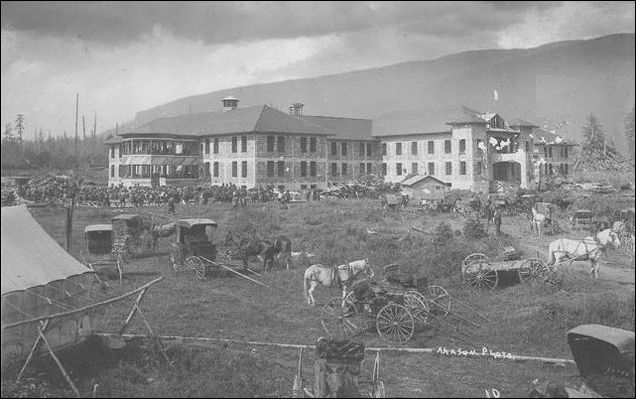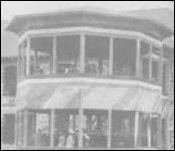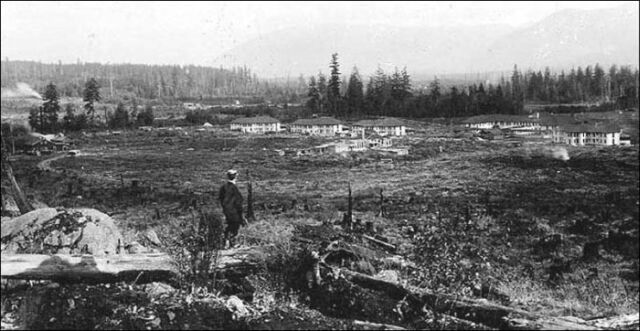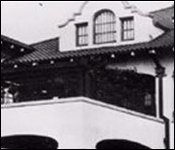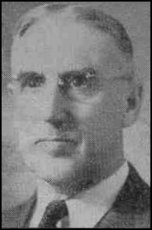Caveat emptor
Over the years since we first started this section, we have become aware that many people are directed here in search of information about the late Dr. Charles H. Jones and lobotomy, after reading William Arnold's book, Shadowland, about Frances Farmer. You may have been deceived by the hype surrounding that book. It is a work of fiction, which has been deceptively promoted as a historical expose of lobotomy. Frances Farmer was never lobotomized at Western State Hospital. The "evidence" that Arnold presents has been conclusively proven to be a hoax.
I knew Dr. Jones very well, having met him as a child when my father worked for him at Northern State. Before his accidental death ten years ago, he showed me a file of communication with Arnold. Jones provided evidence that no such operation had ever taken place. Jones and others have claimed that Arnold ignored the evidence and created a scenario that could have been right out of any sensationalistic movie that Arnold reviewed. In fact, a movie starring Jessica Lange was made, based on the book. I refer you to the website of Jeffrey Kauffman, who has studied the Frances Farmer case extensively for the past 20 years. He takes Arnold's contentions, one by one, and debunks them. If you were directed here after reading the supposed Farmer autobiography, Will There Really Be a Morning?, by Farmer's friend Jeanira Ratcliff, you need to know that the book was not really Farmer's story. As Ratcliff has candidly admitted, she wrote the book in a sensationalistic way in hopes of a movie contract. Kauffman sums up the confusion with this paragraph:
"Frances Farmer was undoubtedly a deeply troubled woman who suffered greatly in her life. The relatively primitive conditions of the state institution system, as well as the equally primitive therapies used in those days, no doubt exacerbated rather than helped her condition, as Frances herself stated more than once. However, sensationalizing and "fictionalizing" what this brave woman went through not only does a disservice to her memory, marginalizing her very real tribulations, it also prevents us from objectively understanding Frances' trials in their proper historical context. A clear-headed, fact-based approach is the only way we can assure that the mistakes of the past are not repeated and that Frances' valiant struggle to maintain mental and emotional equilibrium stands as an inspiring example for those similarly afflicted."
One last caveat: we know nothing about ghosts or such at Northern State, no more than what we heard as myths at school and on the playground. Some very bad offenses were committed at the hospital, some by well-meaning people, some by people who acted like sadists. My father, well aware of the negative side of the hospital, insisted, however, that there were no bodies stowed away in tunnels. He would have told mother or me.
|
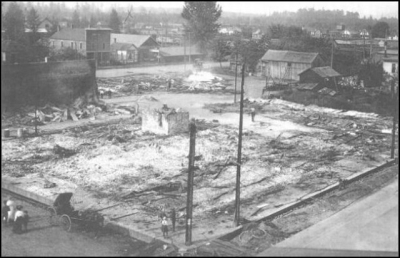
 Covering from British Columbia to Puget Sound. Washington counties covered: Skagit, Whatcom, Island, San Juan, Snohomish, focusing on Sedro-Woolley and Skagit Valley.
Covering from British Columbia to Puget Sound. Washington counties covered: Skagit, Whatcom, Island, San Juan, Snohomish, focusing on Sedro-Woolley and Skagit Valley. This page originated in our free pages
This page originated in our free pages  An evolving history dedicated to committing random acts of historical kindness
An evolving history dedicated to committing random acts of historical kindness  The home pages remain free of any charge. We need donations or subscriptions to continue.
The home pages remain free of any charge. We need donations or subscriptions to continue.  Please pass on this website link to your family, relatives, friends and clients.
Please pass on this website link to your family, relatives, friends and clients.